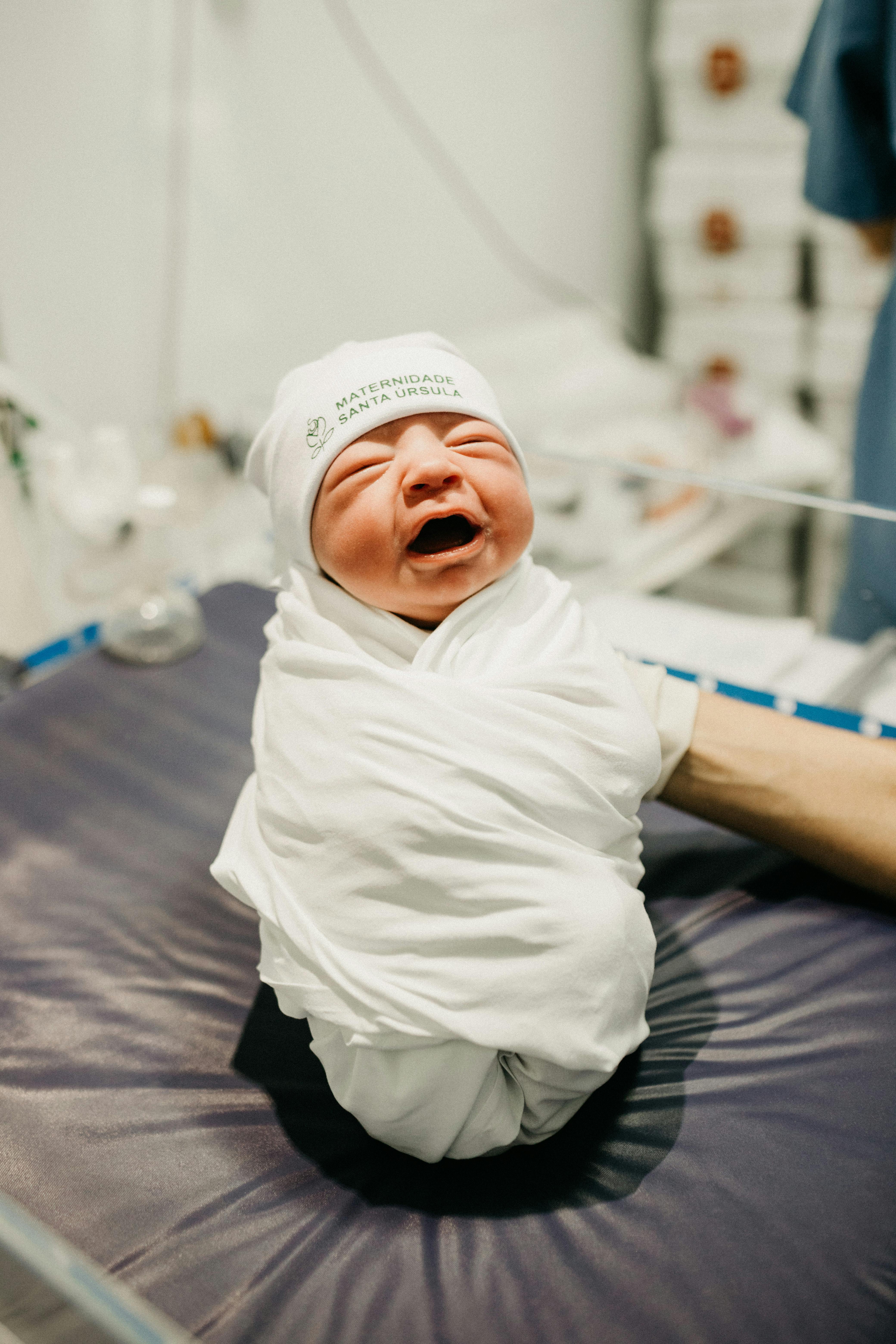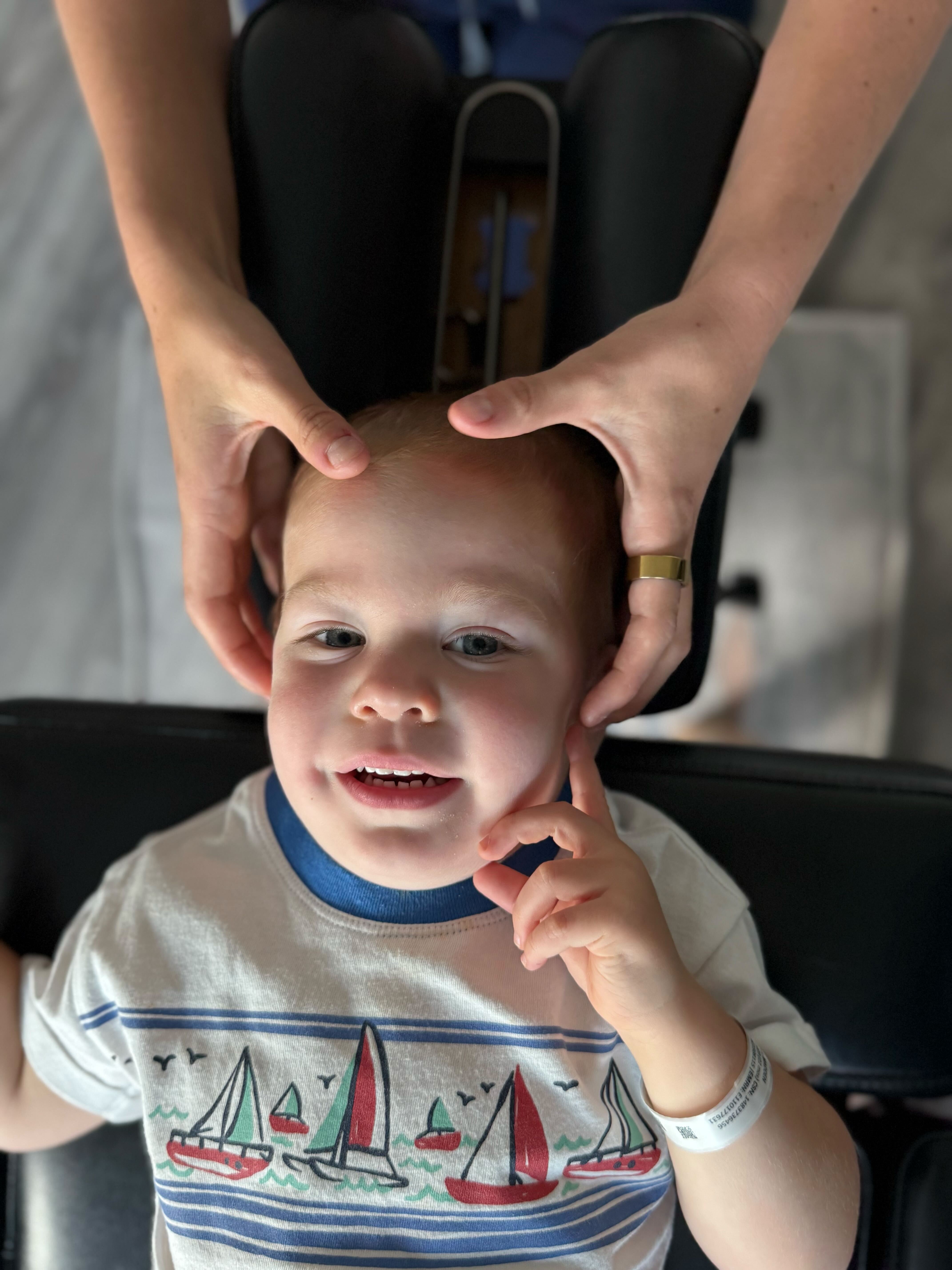Summer is a time for fun and relaxation, but for children with Sensory Processing Disorder (SPD), it can bring unique challenges. Activities like beach outings, parades, and vacations can overwhelm them with large crowds, loud noises, and heat. SPD affects 1 in 6 children, and is frequently misunderstood or overlooked by healthcare providers. At Pinnacle Chiropractic, we understand the impact of SPD and focus on addressing its root causes through specialized, nervous system-based chiropractic care. Early intervention is crucial for children with SPD to thrive, and we offer personalized, drug-free solutions to help them manage sensory overload and find balance.
If you've noticed sensory issues in your child this summer, you're not alone. Our compassionate and educational approach provides hope and tangible results for families navigating sensory challenges. We believe in promoting relaxation, proper function, development, healing, and growth. Let us help your child enjoy the season to the fullest. Reach out to Pinnacle Chiropractic today to learn how our specialized care can support your family and help your child flourish.
Common Signs of Sensory Processing Disorder in Children
- Oversensitivity to touch, clothing, sounds, smells, lights, and trying new foods: Children with SPD may experience discomfort with certain textures, avoid being touched, or become distressed when clothing feels too tight or itchy. They may also cover their ears in response to normal sounds or fear loud noises like vacuum cleaners, sirens, or alarms.
- Seeking or avoiding sensory input: Some children with SPD may constantly touch objects, seek strong tactile sensations, or engage in rough play, while others may avoid activities that involve physical contact, such as hugging, or become distressed by activities like haircuts or teeth brushing.
- Difficulty with fine and gross motor skills: Children with SPD may struggle with tasks such as buttoning clothes, using utensils, writing, running, jumping, or riding a bike.
- Balance and coordination issues: Frequent tripping, falling, or appearing clumsy can be signs of SPD.
- Poor body or spatial awareness: Children with SPD may have difficulty knowing where their body is in space, leading to bumping into objects or people.
- Feeling overwhelmed in crowded places: Distress or anxiety in crowded environments like malls, parks, or parties is common among children with SPD.
- Difficulty transitioning between activities: Meltdowns or anxiety may occur when changing from one activity to another or moving between different environments.
- Emotional outbursts and difficulty self-calming: Children with SPD may have frequent tantrums or meltdowns in response to sensory overload or frustration and struggle to soothe themselves when upset, often needing external help to calm down.
- Hyperactivity or inactivity: Depending on the sensory input they seek or avoid, children with SPD may be excessively active or lethargic.
- Difficulty sleeping and poor attention span: Trouble falling asleep, staying asleep due to sensory sensitivities, and difficulty focusing on tasks are common among children with SPD.
- Repetitive behaviors: Engaging in repetitive motions or actions as a way to self-soothe or manage sensory input can be a sign of SPD.
What's Really Happening with the Nervous System in SPD?
Sensory processing is a three-part process:
- Sensory input enters through the sensory nerves and the sensory aspect of the spinal cord, reading information from both internal (body) and external environments.
- The brain and central nervous system process or interpret sensory information, determining what is important to pay attention to and react to and what should be filtered out or ignored.
- The brain and nervous system send information and "actions" or "impulses" to various parts of the brain and body to react and respond to the incoming sensory input.
When the sensory nerve pathways into the brain and nervous system are altered and interfered with, the brain and nervous system receive "bad information." This leads to poor decision-making or interpretation and, ultimately, challenging actions and outputs. The root cause of SPD is a neurosensory communication and connection problem called subluxation or nervous system dysregulation.
The Perfect Storm: Factors Contributing to the Development of SPD
Several factors can contribute to the development of Sensory Processing Disorder, creating a "perfect storm" that leads to the onset of sensory issues. These factors may include:
- High-stress pregnancy: Maternal stress during pregnancy can impact fetal brain development and increase the risk of sensory processing difficulties.
- Birth interventions: Forceps, vacuum extraction, induction, and cesarean section can physically alter the function of the brainstem, the crucial area of the brain that processes and interprets sensory information.
- Environmental factors: Exposure to toxins, pollutants, and other environmental stressors can impact neurodevelopment and contribute to sensory processing issues.
- Genetic predisposition: Some children may have a genetic vulnerability to developing SPD, which can be triggered by environmental factors or other stressors.
Understanding these factors can help parents and healthcare providers better identify children at risk for SPD and intervene early to provide the necessary support and care.
The Path to Pinnacle Potential: Neurologically-Focused Chiropractic Care
While the root cause of Sensory Processing Disorder (SPD) may not always be detected through common medical diagnostics, Neurological INSiGHT Scans can identify subluxations, nervous system dysregulation, and dysfunction. These scans provide a clear picture of what's behind your child's frequent tantrums, meltdowns, and sensory difficulties.
If you’ve spent months or even years with occupational therapy and various sensory "workarounds" and long for a simpler, less modified life for your child and family, it's time to explore Neurologically-Focused Chiropractic Care. This specialized form of care can be transformative for children struggling with sensory issues. By addressing the root cause of SPD, chiropractic care can help your child and family experience a calmer, more consistent quality of life.
Neurologically-Focused Chiropractic Care benefits children by addressing subluxations and nervous system dysregulation, leading to improved sensory processing and responses. As the nervous system functions better, children may experience enhanced emotional regulation, resulting in fewer outbursts and easier self-regulation. Additionally, a balanced nervous system can improve focus, attention, and sleep quality.
If you suspect your child may have SPD, reach out to Pinnacle Chiropractic today. Early intervention and the right care can make all the difference in your child's development and well-being. If you’re not local to us, please check out the PX Docs directory to find a PX Doc near you. Neurologically-Focused Chiropractic Care offers a drug-free, non-invasive approach to addressing the root cause of SPD, helping you support your child's sensory processing and create a family environment that’s thriving instead of just surviving.










